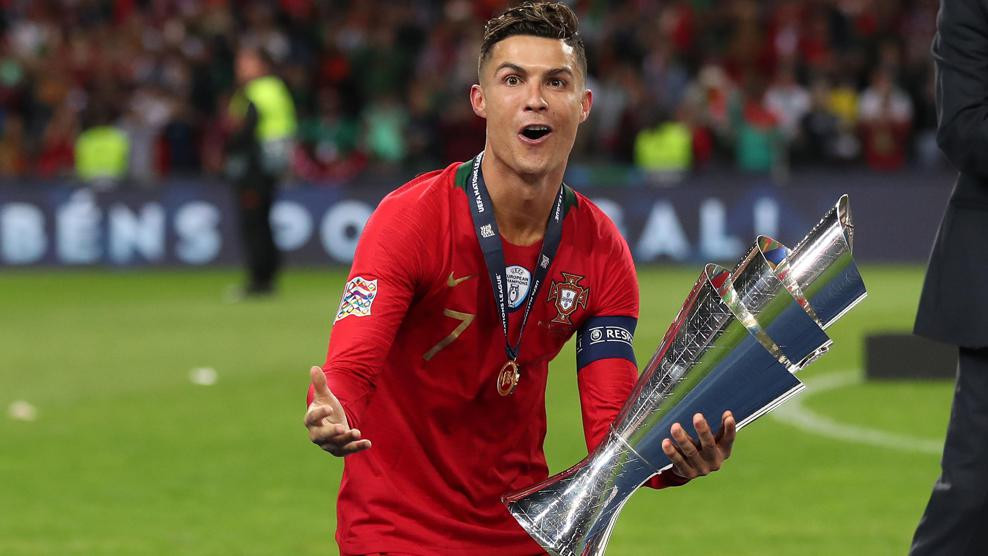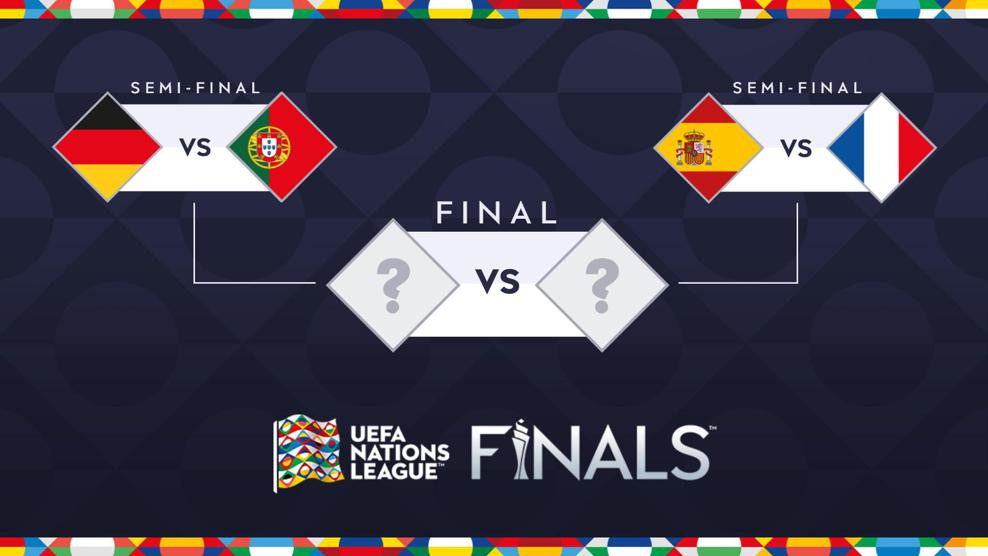Navigating the world of international football can be confusing, especially when tournaments like the Nations League pop up. This article provides a detailed explanation of what the Nations League football is, its format, changes for the 2024/25 season, and more. Ready to understand this exciting competition? Let’s dive in!
What is the Nations League in Football?
The UEFA Nations League is a biennial international football competition contested by the senior men’s national teams of the member associations of UEFA, the European governing body for football. Instituted to replace meaningless friendlies with more competitive matches, it groups teams into leagues based on their rankings, promoting and relegating teams based on performance. According to UEFA, this ensures more meaningful and exciting encounters between equally-ranked nations.
The Genesis of the Nations League
Before the Nations League, international breaks were often filled with friendly matches that lacked the intensity and significance of competitive games. This led to decreased fan interest and a perception that these games were simply obligations. To address this, UEFA developed the Nations League to provide:
- More Competitive Matches: Teams face opponents of similar skill levels, leading to tighter, more engaging contests.
- Reduced Meaningless Friendlies: By offering a competitive structure, the Nations League minimizes the need for friendlies.
- Increased Fan Interest: Promotion and relegation add stakes to each game, boosting fan engagement and viewership.
Structure and Format
The Nations League operates on a league system, dividing UEFA member associations into different leagues (A, B, C, and D) based on their UEFA national team coefficient rankings.
- League A: Contains the highest-ranked teams.
- League B: Contains teams ranked below League A.
- League C: Contains teams ranked below League B.
- League D: Contains the lowest-ranked teams.
Each league is further divided into groups, where teams compete in a round-robin format. The winners of each group in Leagues B, C, and D are promoted to the higher league, while the bottom teams in Leagues A, B, and C are relegated to the lower league.
How the Nations League Impacts European Football
The Nations League has significantly impacted European football by providing a structured and competitive environment for national teams. The tournament has led to:
- Enhanced Development: Regular competitive matches against similarly ranked teams provide valuable experience and aid in the development of players and national teams.
- Increased Revenue: The Nations League generates substantial revenue through broadcasting rights, sponsorships, and ticket sales, benefiting UEFA and its member associations.
- Qualification Pathways: The Nations League offers an alternative pathway to qualify for the UEFA European Championship (Euro), adding another layer of competition and opportunity.
Understanding the 2024/25 UEFA Nations League
The 2024/25 edition of the UEFA Nations League features several changes designed to enhance the competition’s excitement and relevance.
Key Dates for the 2024/25 Season
Mark your calendars! Here are the critical dates for the 2024/25 Nations League:
- Matchday 1: September 5-7, 2024
- Matchday 2: September 8-10, 2024
- Matchday 3: October 10-12, 2024
- Matchday 4: October 13-15, 2024
- Matchday 5: November 14-16, 2024
- Matchday 6: November 17-19, 2024
- League A/B and League B/C Play-offs: March 20-23, 2025
- League A Quarter-finals: March 20-23, 2025
- Final Tournament: June 4-8, 2025
- League C/D Play-offs: March 26-31, 2026
Changes Implemented for 2024/25
Several significant changes have been introduced for the 2024/25 Nations League season:
- New Knockout Round: A new knockout round will be played in March 2025, creating continuity between the group phase and the finals.
- League A Quarter-Finals: The League A group winners and runners-up will participate in home-and-away quarter-finals. Winners qualify for the finals.
- Promotion and Relegation: Fourth-placed teams in Leagues A and B are automatically relegated. The two lowest-ranked fourth-placed teams in League C are relegated to League D. Group winners in Leagues B and C, and the two group winners in League D, are automatically promoted.
- Play-offs: Third-ranked teams of League A and runners-up of League B, as well as third-ranked teams of League B and runners-up of League C, will play a home-and-away promotion/relegation play-off. Play-offs will also occur between the two best-ranked fourth-placed teams from League C and the two runners-up from League D.
These changes aim to make the Nations League more competitive and engaging, ensuring that more teams have meaningful matches throughout the season.
Teams Participating in the 2024/25 Nations League
The lineup for the 2024/25 Nations League is as follows:
League A
- Group A1: Croatia, Portugal, Poland, Scotland
- Group A2: Italy, Belgium, France, Israel
- Group A3: Netherlands, Hungary, Germany, Bosnia and Herzegovina
- Group A4: Spain, Denmark, Switzerland, Serbia
League B
- Group B1: Czechia, Ukraine, Albania, Georgia
- Group B2: England, Finland, Republic of Ireland, Greece
- Group B3: Austria, Norway, Slovenia, Kazakhstan
- Group B4: Wales, Iceland, Montenegro, Türkiye
League C
- Group C1: Sweden, Azerbaijan, Slovakia, Estonia
- Group C2: Romania, Kosovo, Cyprus, Lithuania
- Group C3: Luxembourg, Bulgaria, Northern Ireland, Belarus
- Group C4: Armenia, Faroe Islands, North Macedonia, Latvia
League D
- Group D1: Gibraltar, San Marino, Liechtenstein
- Group D2: Moldova, Malta, Andorra
How Promotion and Relegation Work
Promotion and relegation are integral parts of the Nations League, adding an extra layer of competition and excitement. At the end of each edition:
- Promotion: The winners of each group in Leagues B, C, and D are promoted to the next higher league. This gives smaller nations a chance to compete against tougher opponents and improve their rankings.
- Relegation: The bottom teams in each group in Leagues A, B, and C are relegated to the next lower league. This ensures that teams must perform consistently to maintain their status in the higher leagues.
For the 2024/25 season, play-offs have been introduced to determine some of the promotion and relegation spots, adding even more drama to the competition.
The Nations League Finals
The culmination of the Nations League is the finals tournament, where the top teams from League A compete for the championship. The finals involve semi-finals, a third-place match, and the final.
Format of the Finals
The Nations League finals feature the following format:
- Quarter-Finals: League A group winners and runners-up participate in home-and-away quarter-finals.
- Semi-Finals: The four quarter-final winners advance to the semi-finals, which are single-leg matches.
- Third-Place Match: The losers of the semi-finals compete in a third-place match.
- Final: The winners of the semi-finals compete in the final to determine the Nations League champion.
Previous Nations League Finals
Here’s a look at the previous Nations League finals:
- 2019: Portugal 1-0 Netherlands (Porto)

- 2021: France 2-1 Spain (Milan)
- 2023: Croatia 0-0 Spain (aet, Spain win 5-4 on pens, Rotterdam)

What to Expect in the 2024/25 Finals
The 2024/25 finals promise to be an exciting event, with top teams from Europe vying for the title. Keep an eye on teams like Germany, Portugal, Spain, and France, who are strong contenders.
- Semi-finals: Germany vs. Portugal, Spain vs. France
- Final: Scheduled for Sunday, June 8, 2025
Why the Nations League Matters
The Nations League is more than just another international tournament. It serves several important purposes:
- Improving Football Quality: By ensuring that teams play competitive matches against opponents of similar skill levels, the Nations League helps to improve the overall quality of European football.
- Enhancing National Team Development: The tournament provides national teams with valuable experience and helps to develop players, tactics, and strategies.
- Offering Qualification Pathways: The Nations League offers an alternative pathway to qualify for major tournaments like the European Championship, giving more teams a chance to compete on the big stage.
Impact on FIFA Rankings
The Nations League matches are official international games that affect FIFA rankings. Good performances in the Nations League can boost a team’s ranking, while poor performances can lead to a drop. This adds an extra incentive for teams to take the tournament seriously. According to FIFA, the rankings are based on a point system that considers the result of a match, its importance, the relative strength of the teams, and the confederation.
Benefits for Fans
For fans, the Nations League offers more meaningful and exciting international football. The competitive nature of the tournament, combined with the stakes of promotion and relegation, ensures that every match matters. This leads to:
- More Thrilling Games: Closer matchups between teams of similar quality result in more exciting and unpredictable games.
- Increased Engagement: The stakes of promotion and relegation keep fans engaged throughout the tournament.
- Opportunity to Support: Fans get to support their national teams in meaningful contests.
FAQ About the Nations League
To further clarify any lingering questions about the Nations League, here are some frequently asked questions:
What is the main purpose of the Nations League?
The main purpose is to replace meaningless friendlies with competitive matches between equally ranked teams.
How often is the Nations League played?
The Nations League is played every two years.
How do teams qualify for the Nations League finals?
The League A group winners and runners-up participate in home-and-away quarter-finals, with the winners qualifying for the finals.
What happens to teams that finish at the bottom of their group?
Teams that finish at the bottom of their group in Leagues A, B, and C are relegated to the lower league.
How does the Nations League affect Euro qualification?
The Nations League offers an alternative pathway to qualify for the UEFA European Championship.
What are the benefits of the Nations League for smaller nations?
The Nations League gives smaller nations a chance to compete against tougher opponents, improve their rankings, and potentially qualify for major tournaments.
How does the Nations League affect FIFA rankings?
The Nations League matches are official international games that affect FIFA rankings.
Who won the previous Nations League final in 2023?
Spain won the previous Nations League final in 2023.
Where can I find the latest updates and scores for the Nations League?
You can find the latest updates and scores on the official UEFA website and major sports news outlets.
Will the Nations League replace the FIFA World Cup?
No, the Nations League will not replace the FIFA World Cup. It is a separate tournament focused on European national teams.
Looking Ahead: The Future of the Nations League
The Nations League has established itself as a key fixture in the international football calendar. As it continues to evolve, it promises to offer even more competitive matches, exciting storylines, and opportunities for teams to shine. With its impact on FIFA rankings and qualification pathways, the Nations League will continue to shape the landscape of European football for years to come.
How to Stay Informed
Staying informed about the Nations League is essential for any football fan. Here are some tips on how to keep up with the latest news, scores, and analysis:
- Follow UEFA’s Official Website: The official UEFA website provides comprehensive coverage of the Nations League, including news, schedules, scores, and standings.
- Monitor Major Sports News Outlets: Reputable sports news outlets like ESPN, BBC Sport, and Sky Sports offer in-depth coverage of the Nations League.
- Engage on Social Media: Follow UEFA and your favorite national teams on social media platforms like Twitter, Facebook, and Instagram for real-time updates and behind-the-scenes content.
Need More Answers?
Still have questions about the Nations League or other football topics? At CAUHOI2025.UK.COM, we’re dedicated to providing you with clear, accurate, and reliable information. Our team of experts is here to answer your questions and provide insights on a wide range of subjects.
Whether you’re a student, a young professional, or someone simply seeking information, we’re here to help. Visit CauHoi2025.UK.COM today to explore our resources and get the answers you need. You can also reach out to us at Equitable Life Building, 120 Broadway, New York, NY 10004, USA or call +1 (800) 555-0199.
